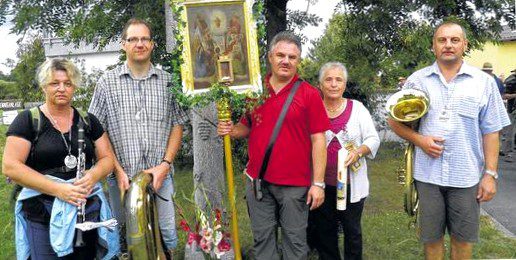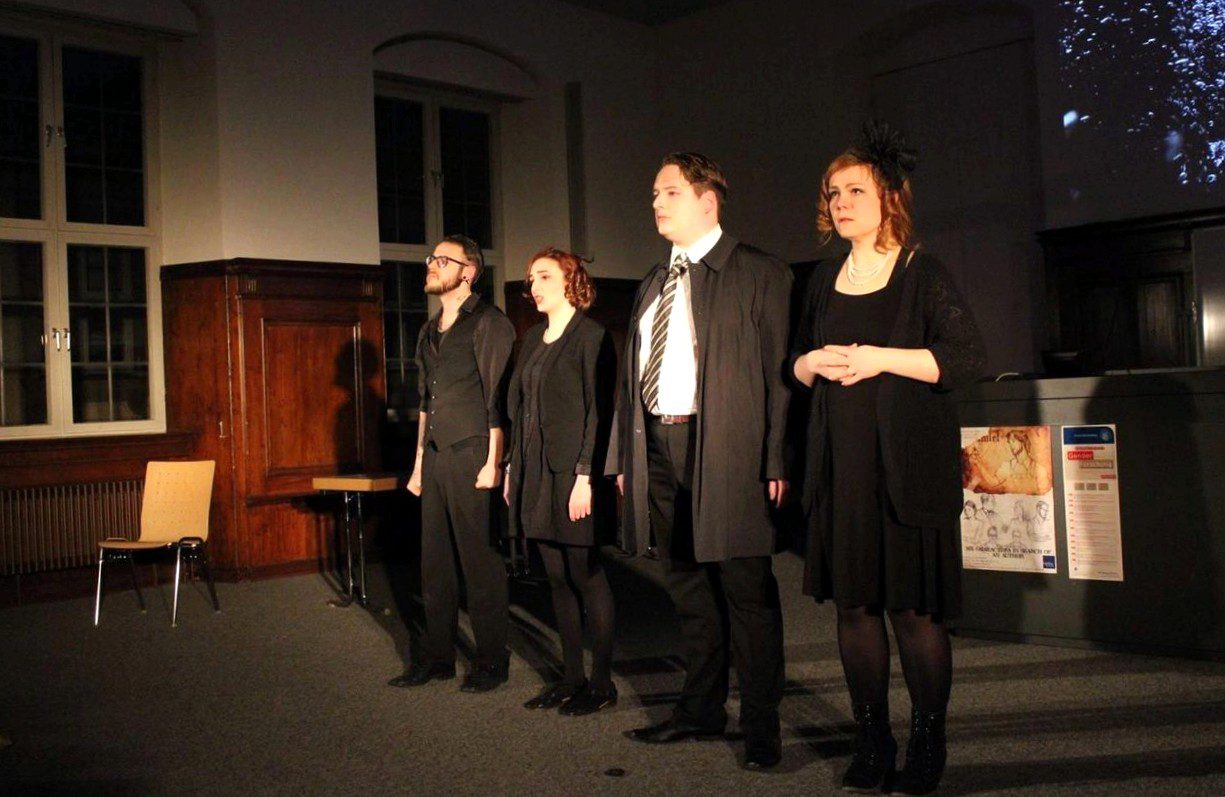The gap between men and women

Men and women are equal. This year, our constitution will be 70 years old, and it has been written in the constitution for just as long that no one may suffer disadvantages because of his or her gender. "Equality is enshrined in german law and EU directives", says harald rost. The sociologist has been conducting research at the ifb for over 20 years: the state institute for family research at the university of bamberg is the only scientific organization in germany devoted exclusively to family research. There is a lot to be said for equal rights, for the equality of men and women. It exists. On paper. "There is a wide gap between the norm and reality."
Germany's next top managers?
The reality is that the proportion of women in management positions is only 29 percent, five percent below the global average. Top model shows and wedding shows dominate large parts of the image of women in the media. Secure, highest-paying job prospects for decades to come offered by the "mint-professions: mathematics, computer science, natural sciences, technology – although germany is the third most important country here after the u.S. And india, only 16 percent of ours are "mint-female talents. This is the criticism of the latest global gender gap report, for which the world economic forum analyzes the gap between the opportunities of men and women every year.
Overall, germany ranks 14th in the world for 2018. From 149 bursts. In the field of health, the federal republic achieves almost top scores. If there is a disadvantage here, then it affects the men: on average they live three years less. There is hardly any difference between the sexes when it comes to education in this country. Nevertheless, germany only made it to 36th place in the field of economics in 2018. Place. Behind countries like botswana, thailand, ghana and rwanda.
"Role distribution young phenomenon"
In germany, women do almost two-thirds of the unpaid housework and care for children and dependents. Time off, career cutbacks, part-time jobs: many women give up economic independence for the sake of their families – until their old-age pensions are lower than usual.
"In the 1950s, the image of the man as breadwinner and the woman who takes care of the household and family developed. In the 1960s and 1970s, a man was proud that his wife didn't have to work", says rost. "This distribution of roles is a relatively recent phenomenon: in the past, women always worked." The deputy director of the ifb explains that the gender image from the post-war period is softening more and more. "But how common it still is, you can see clearly as soon as a child comes along."
Among mothers in germany today, 30 percent are not employed at all, and more than two-thirds of working mothers work part-time. But only just under six percent of fathers.
Men don't have it easy either
For dads, this means that 94 percent can hardly ever pick up their children from kindergarten or school, miss a lot of school and today often suffer from the bad parental conscience that long plagued only working mothers. "Just a few years ago, reconciling family and career was a women's issue only. This has changed. Expectations of the role of father have changed", says rost. "Women want a committed father, men also want to get something out of their children. And they want to offer the child something." In other words, they want to fulfill the classic role of a breadwinner and have plenty of time for their family. It is not easy.
What couples negotiate among themselves
The law allows fathers to take one year of parental leave, for example. "But in fact most of them can't do it, they just stay at home for two months. Often it is not compatible with the conditions of professional life if a father wants to work part-time." But why actually?
In the netherlands, 26 percent of the manner do not work full time. Part-time employees are not automatically second-class colleagues if a company is well-positioned. This means that work and family life can be shared more fairly between men and women. Children spend equal time with mom and dad. Both parents can earn money. But they can't simply negotiate responsibilities individually when the political and economic framework is geared to old role patterns. No matter how cool, modern and educated the couple may be, no matter how much the man may affirm that he will stay at home with his child – if he earns 1000 euros more than she does, mom will work part-time and dad full-time. This is part of the spiral that leads to women earning less in germany. And politicians are calling for a higher-income model with measures such as spousal splitting.
Money and laws
France is setting the political course differently. "Often both parents have to work full time to make ends meet", says rost. But children are seen as a task for society as a whole. "There is a lot of investment in infrastructure and many incentives to have children."
In iceland, which tops the global gender gap report for the tenth year in a row, a law came into force in 2018 that forces companies with more than 25 employees to pay equal wages to men and women – and to provide proof of it. Women are very present in icelandic politics. In addition to economic equality, germany also has some catching up to do in terms of political participation. The number of women in the new bundestag is the lowest it has been in 20 years.
Good kindergarten, equal opportunities
Rost believes that the good daycare law, which has been in force since 1. The new law, which comes into effect on january 1, can help achieve greater equality of opportunity. "The right screw is being tightened. Germany is a country that has invested very little in childcare. It's not just about quantity. Parents want their children to be well taken care of when they go to work." However, there is a lack of educators for the "good kindergarten". To close this loophole is not only a step to improve the opportunities of many women. It also improves equal opportunities for children. Because it also exists – on paper.
Sex, power, bills: milestones in the history of equality
1911the first women's day is celebrated in denmark, germany, austria-hungary and switzerland. Proposed a year earlier by the german socialist clara zetkin at the international socialist women's conference in copenhagen. International women's day is now always celebrated on 8 march. March committed. 1919 women's suffrage: for the first time, women were allowed to vote in the election to the german national assembly on 19. January 1919 participate. In wyoming, USA, women were able to cast their political vote as early as 1870.
1933 national socialism pauses the history of the women's movement. Women are deprived of the right to stand for election. The role of housewife and mother is given priority. Women's day is banned and mother's day is promoted instead.
1949 equal rights for men and women are enshrined in article 3 of the basic law. In the first german bundestag, the proportion of women is just under seven percent. Maria probst (CSU, karlstadt constituency) is the only female member of parliament from franconia.
1958 the equal rights act is introduced with the aim of implementing in federal law the equal rights of men and women that had already been established in 1949.
1968 the law on maternity protection is improved; there is now a period of protection for working mothers of six weeks before and eight weeks after childbirth.
1971 the illustrated "stern headlines with the headline "we have had an abortion!". In the campaign initiated by alice schwarzer, 374 women declare that they have violated section 218 of the penal code. This fires up the public debate on abortion. Several reforms follow. Today, abortion is no longer punished in the first twelve weeks after counseling by a recognized agency. 1972 germany's first women's list in local elections is established in hirschaid near bamberg, germany.
1975 the UN proclaims the "international year of the woman from. For the first time, the UN organizes a celebration of international women's day. The first UN world conference on women is held in mexico city. The "UN decade of women" follows from 1976 to 1985.
1977 marriage and family law is reformed. Women are now allowed to go to work without the consent of their husbands, among other things. 1980 the law on equal treatment of men and women in the workplace is enacted.
1986 the law on parental allowance and parental leave is introduced.
1987 the department for women's policy in the federal ministry for youth, family, women and health starts work.
1991 the federal ministry for women and youth becomes a separate department.
1994 the family name law is amended. From now on, married couples are free to decide on a common surname.
1996 the legal right to a kindergarten place is introduced. It applies in principle to children over the age of three.
1997 marital rape is made a criminal offense.
2005 women are underrepresented in parliamentary and cabinet seats and ministerial posts worldwide. Female heads of state are even rarer: with angela merkel, germany has its first female chancellor.
2013 the journalist laura himmelreich joins in a sexism debate after disparaging remarks by the FDP politician rainer bruderle. The hashtag #aufschrei (outcry) is established on the internet service twitter for news about sexism. 2015 law for equal participation of women and men in leadership positions obliges 108 listed companies to have at least 30 percent of their supervisory board made up of women. 2016 the sexual offence law is tightened: for the first time, the principle "no means no" is applied codified. This so-called "grapscherparagraf" (groper's paragraph) should better protect women from sexualized violence.
2017 with revelations about hollywood producer harvey weinstein, a discussion about sexual abuse, harassment and incrimination begins. Under the hashtag "me too women around the world draw attention to it. 2018 the law demanding transparency of pay structures, often called the equal pay act, takes effect in practice. Employees now have a right to information.
RELATED POSTS

All are back Do not fear, only believe . This call to the traditional vierzehnheiligen pilgrimage was followed last weekend not only by numerous sommerach citizens,… |

Muller and stamm-fibich: soon at the same table? She has already set up her two offices. Their employees are hired and trained. SPD member of parliament martina stamm-fibich already has her own… |

Compromise with workforce: opel to stay in the ruhr region Car production will be discontinued at the end of 2014, but the opel distribution center will be permanently maintained against the original plan with a… |

An ensemble of students In the series buhne frei we present weekly theater groups, individual artists and other ensembles from city and county. There are also theater… |
